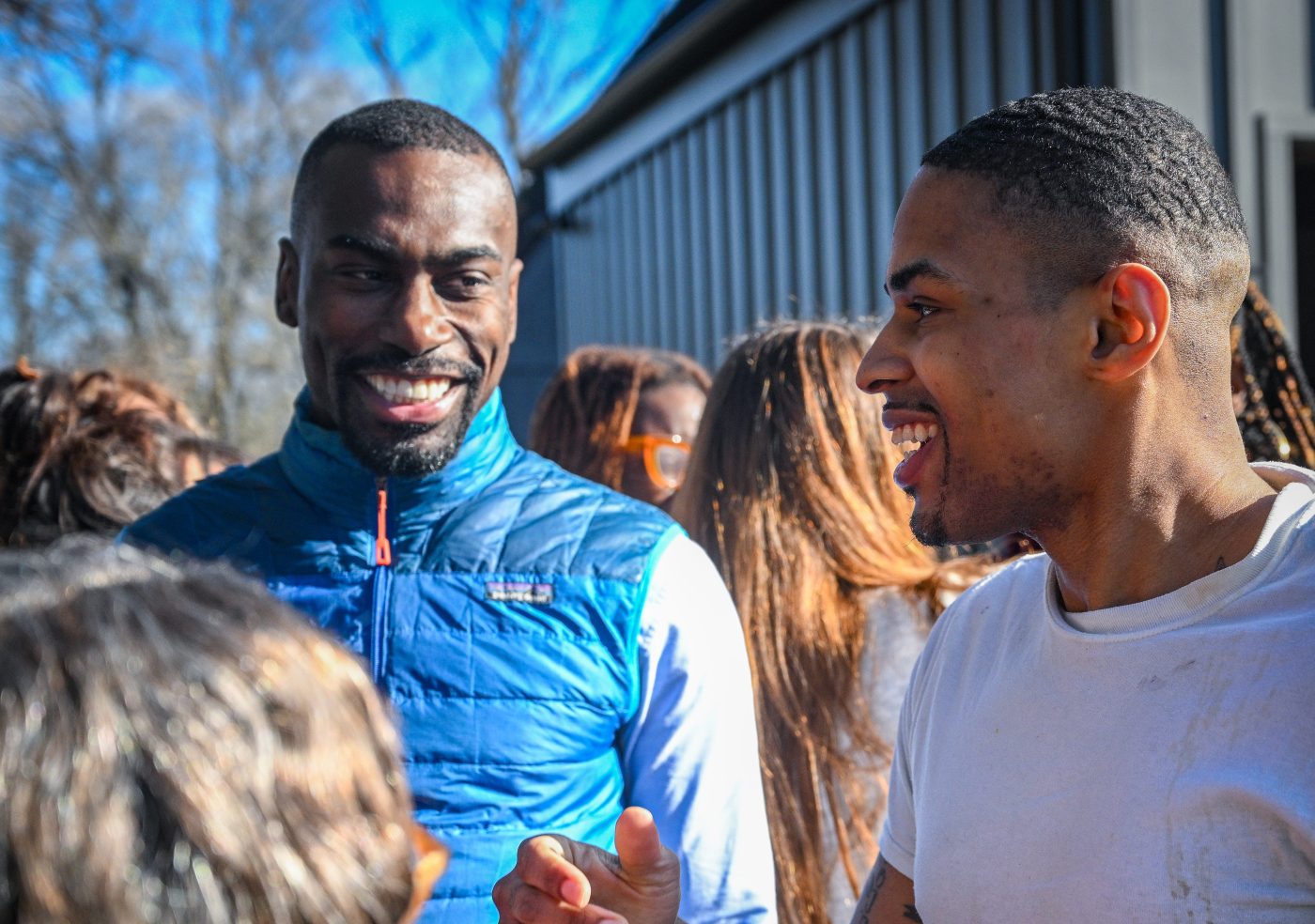
[Baltimore Sun] Dan Rodricks: BLM activist DeRay McKesson still hounded by ‘wild’ lawsuit | STAFF COMMENTARY
At least three times, people have gone to court to try to pin the blame for violent acts against police officers on DeRay McKesson, the Baltimore-born civil rights activist and outspoken leader in the Black Lives Matter movement.
McKesson was named in a lawsuit that sought to hold him and 16 other people, including President Barack Obama, responsible for the deaths of five Dallas police officers in July 2016. The officers were ambushed by a sniper during a protest in downtown Dallas of fatal police shootings that had occurred elsewhere that summer. The lawsuit claimed McKesson’s outspoken activism had incited the deadly violence against police.
A federal judge dismissed that suit.
McKesson was then named in a lawsuit brought by a Louisiana officer who was wounded in a separate police ambush, in Baton Rouge, just 10 days later. McKesson had helped organize a protest near police headquarters there, following the fatal shooting of a man named Alton Sterling. Because of this, McKesson was supposedly responsible for the ambush. The lawsuit claimed he and other BLM leaders “failed to disavow the violence” and had “declared a virtual war on police.”
That case was also dismissed.
But a third suit that seeks to blame McKesson for something he didn’t do — assault a police officer — is still alive.
Minus proof of direct action or provocative words, how can an organizer of a protest be responsible for the irresponsible actions of someone in a large crowd?
But eight years later, McKesson is still fighting the second Louisiana lawsuit.
The plaintiff is an officer who was hit by a rock or some other hard object during the Baton Rouge protest on July 9, 2016. The lawsuit alleges that, while he did not attack the officer, McKesson was responsible for the officer’s injuries because of his role in encouraging the Baton Rouge protest.
After years of pretrial litigation in the conservative Fifth U.S. Circuit over the constitutionality of the lawsuit, the Supreme Court had a chance to throw the case out, as the original trial judge did in 2017. That judge said the injured officer had “utterly failed to state a plausible claim.”
But last week, the Supreme Court refused to hear McKesson’s appeal, which is baffling in light of earlier decisions where the court protected organizers of demonstrations from being sued for unlawful or injurious acts by others.
So, as of now, in the Fifth Circuit of Louisiana, Mississippi and Texas, a protest organizer can be liable for what others do. The American Civil Liberties Union says that standard of liability violates the First Amendment because it poses an “unconstitutional burden on our right to protest.”
Nonetheless, McKesson faces a possible trial in Louisiana, where the punitive suit remains active.
“It is a wild case,” he says.
Throughout all these years, McKesson has maintained a large presence in social media — he’s one of only nine people Beyoncé follows on the platform formerly known as Twitter — and he serves as executive director of Campaign Zero, aimed at reducing the use of deadly force by police.
He came to prominence in his hometown during the Freddie Gray uprising of 2015 and ran unsuccessfully for mayor in 2016.
McKesson, who was arrested in Baton Rouge along with dozens of other demonstrators, downplayed his role as an organizer of the July 9, 2016, protest there. “Did I use social media to help people know where to go and stuff? Absolutely, but I wouldn’t call myself an organizer,” he told me. “If anything, I just amplified [the organizers’] message.”
It’s likely because of his high profile in the media that McKesson was singled out, especially by police officers. Garrett Epps, legal scholar and former University of Baltimore law professor, calls the decision by the appeals court in Fifth Circuit to allow the case to go forward “a strange turn into the constitutional Twilight Zone.”
“The legal argument that they make, in the Fifth Circuit, is that I should have just known that harm would happen,” McKesson says.
But intent is key — there must be evidence that an organizer directly called for unlawful or injurious acts — and the Supreme Court has already said as much. Which is why McKesson has some confidence that he’ll eventually win the case.
“There were four amicus briefs filed in my case, and not just from the left,” he says, “because the right understands that this is bad for the right, too, this is bad for everybody.”
I know what you might be thinking: What about Trump?
If DeRay McKesson should not be held liable for someone who threw a rock at a cop, why should former President Donald J. Trump be held liable for the violent attacks on police at the Capitol on Jan. 6, 2021?
In fact, Trump is noticeably not charged with inciting violence. He’s charged with conspiring to obstruct the certification of the 2020 Electoral College vote, of subverting democracy in an attempt to remain in office after losing re-election.
Based on the findings of the House select committee that investigated the Jan. 6 attack on the Capitol, you could argue that Trump was an instigator of the violence against police officers — certainly far more than DeRay McKesson was in Baton Rouge — and yet Trump was not charged with such an offense. That makes the Supreme Court’s pass on the McKesson case wronger than wrong.
